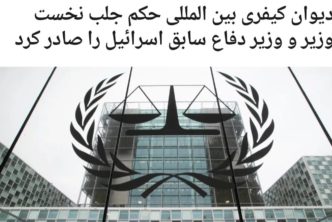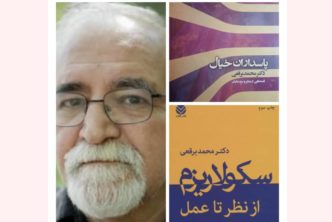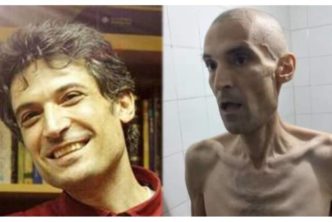Movement Likely To Eschew Politics
By Karl Vick
Washington Post Foreign Service
Friday, February 20, 2004; Page A15
TEHRAN, Feb. 19 — In the Wednesday night editorial meeting of a newspaper called Yas-e-No, the final hours of Iran’s reform movement played out in characteristic fashion. Men in shirtsleeves shuffled papers and prepared to exercise rights it was not clear they actually had.
“If we’re going to publish this letter, let’s publish everything because they’re going to close us anyway,” one editor implored. He tapped a finger on the text of an unusual, almost combustible epistle to Iran’s supreme leader. An hour earlier, it had been read aloud to foreign journalists, but everyone at Yas-e-No knew how dangerous it would be when they printed it in Thursday’s editions.
Mohsen Mirdamadi, sitting across a table cluttered with page proofs and sugar cubes, thought for a moment.
Twenty-five years earlier, his angry eloquence inspired students to storm the U.S. Embassy, humiliating a superpower. On Feb. 1, he led 124 of his fellow lawmakers in a mass resignation to protest the disqualifications of thousands of reformist candidates from the nationwide parliamentary elections set for Friday.
Now Mirdamadi peered into a forbidding future and shook his head. “They’re not going to do anything,” he said, “until the results of the elections are known.”
They did, though. The next day, security forces shut down Yas-e-No — Farsi for “New Jasmine” — and another newspaper. A few hours later, the authorities closed the downtown Tehran headquarters of the Iran Islamic Participation Front, the political party most closely associated with the reform movement.
In the almost seven years since Iranian voters stunned the ruling mullahs by thrusting a smiling reformer into the presidency, electoral politics has been the primary vehicle for change in a country where political power is sharply divided. Though ultimate authority remained in the hands of hard-line Islamic clerics in appointed positions, landslide after landslide gave reformers control over the government’s elective positions and embodied the aspirations of a young majority craving liberty from chafing social regulations and economic atrophy.
That era will end with Friday’s national ballot, widely condemned as a sham that many Iranians say they intend to boycott.
The outcome of the vote is a foregone conclusion: Iran’s 290-member parliament will be dominated by conservatives, a result that was ensured with the ban on reformist candidates.
Only the boycott campaign, led by frustrated reformers and battered student leaders, gives the balloting an element of suspense. If voter turnout is dramatically low, conservatives may gain the parliament but not the legitimacy they crave.
But analysts agree the bigger question is what will become of the impulse for change.
“In these six years, there was a social demand exhibited in Iran that was much bigger than the capacity of the political system,” said Emad Din Baghi, a sociologist and pro-reform journalist. “It has overloaded the system. But it will find its own way.”
Once, the way seemed clear. The 1997 election of President Mohammad Khatami lifted the hopes of Iranians who felt ignored by the ruling clerics, including the majority of the population too young to cherish any memory of the 1979 revolution.
But Khatami, an erudite, soft-spoken cleric, proved no match for the hard-liners who have dominated Iran’s theocracy for so long. Appointed conservatives repeatedly vetoed legislation passed by parliament, so frustrating the reform agenda that Khatami was in tears when he agreed to run for a second term in 2001. Many new lawmakers, however, displayed an appetite for the confrontation Khatami loathed.
It was characteristic of Khatami that as public confidence in him receded, his own Web site dutifully recorded the disappointment.
“Easy come, easy go!” reads a message posted after Khatami announced that his government would administer Friday’s elections, despite an earlier promise to the contrary. “You said you came to put people on the train of hope. You have made them get off with despair.”
Another citizen attacked the president for his abiding devotion to Iran’s theocracy. “You have always said that preserving the regime is important for you. Apparently it seems it is more important than the nation itself!”
But the sharpest disappointment was on campus. When student protests resulted in activists being savagely beaten by right-wing militias, Khatami’s aversion to showdowns led him to issue indirect condemnations of protesters. Student leaders rallied instead in recent years to leaders advocating fundamental change and demonstrating a willingness to sacrifice for it. This week they condemned Khatami for “slaughtering justice, freedom and people’s rights” by holding the elections.
A favorite of the students is Hashem Aghajari, a history professor once sentenced to death for suggesting that Iranians are not obliged to obey ruling clerics “like monkeys.” Aghajari this week agreed that reform from within the system was hopeless and counseled passive resistance instead.
“Tell the totalitarians no,” he wrote from prison.
His advice appears to dovetail with the national mood. Iranians began a broad retreat from politics about two years ago, as the stalemate between reformers and conservatives became clear. Voter turnout for municipal elections a year ago barely topped 10 percent in Tehran. And interviews in the city’s working-class south side a week ago found some people determined to sit out the parliamentary elections even before they had heard of a boycott.
“If everybody was courageous enough not to participate, we could make real change,” said Samira Hojatti, 19. “By not participating, we are proving the state is not legitimate. Iranians are clever. They don’t need to be told what to do. They know what to do.”
Maryam Taleei, 18, wearing a colored scarf in a neighborhood where most women dress entirely in black, curled her lip.
“If they are going to be the same dull men in beards and women in chador, of course I’m not going to vote,” she said.
But while it appears clear that a phase has ended in Iran, there is little agreement about what’s next. Even the political complexion of the new conservative parliament is in doubt.
For all their failings, Khatami and company are credited with at least delivering a new political agenda in the country. The conservative camp is no longer a hard-line monolith; one wing of the movement calls itself “pragmatic.”
In that new context, some analysts hold out hope that the new parliament will be dominated by centrists who will claim the reform mantle as their own. This view was encouraged when the main conservative coalition pointedly declined to include a pair of well-known hard-liners on its candidate list.
But in a broad swath of the capital, distrust of the system runs deep. Some disappointed reformers, while repeating the conventional wisdom that Iranians have little appetite for another revolution, draw unflattering comparisons between the behavior of the current government and the monarchy of Shah Mohammad Reza Pahlavi that was overthrown in 1979, in part because of sham elections.
“Our cry now is referendum,” said Ali Reza, a student at Tehran University. He echoed Aghajari’s call for “fundamental change,” an up-or-down vote on Iran’s theocratic system.
“We hope this can come about because no one wants another revolution,” Reza said. “What we should have is a kind of civil disobedience . . . the kind of actions that happened in Czechoslovakia.”
He spoke on the street outside the gate of the university last week, trying in vain to get inside to a meeting between about 200 students and a handful of reformist lawmakers. After 25 years, the quest for political change had gone back to school. Mirdamadi and other senior reformers, who cut their revolutionary teeth on campus, said they were looking to channel the urge for reform into student and civic organizations.
But a student who had just emerged from the campus meeting said she saw “no hope.”
“And I don’t know how long they’re going to stay in power,” said the student, a chemistry major named Farkhondeh. “They’re repressing every single movement.”
She waved in exasperation at the phalanx of uniforms gathered at the gate.
“Just look: About 200 students are having a meeting,” she said. “Look at all these guards, all these police, all these restrictions. So how is change going to happen?”
http://www.thewe.cc/contents/more/archive2004/february/look_at_all_these_guards_all_these_police.htm




